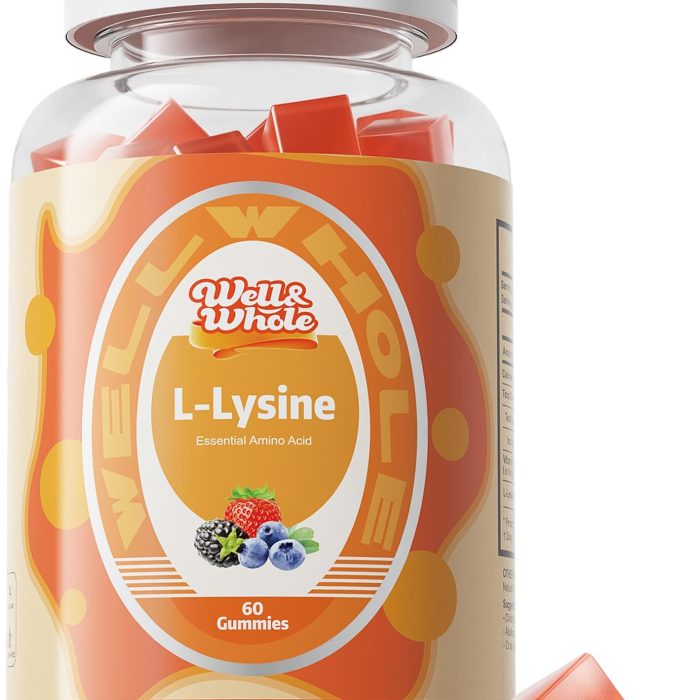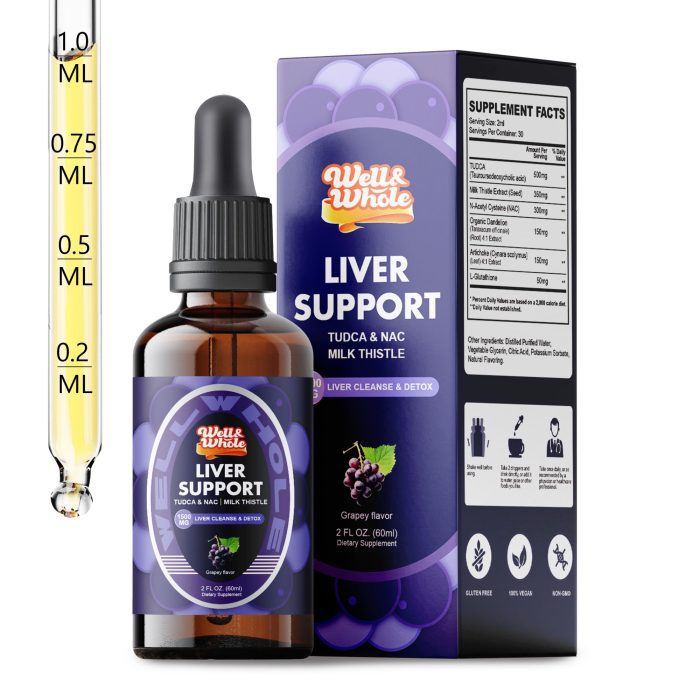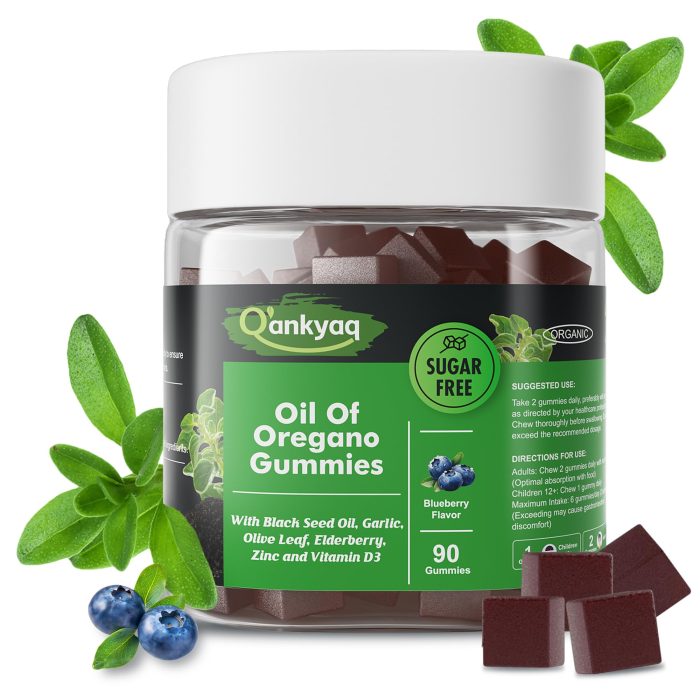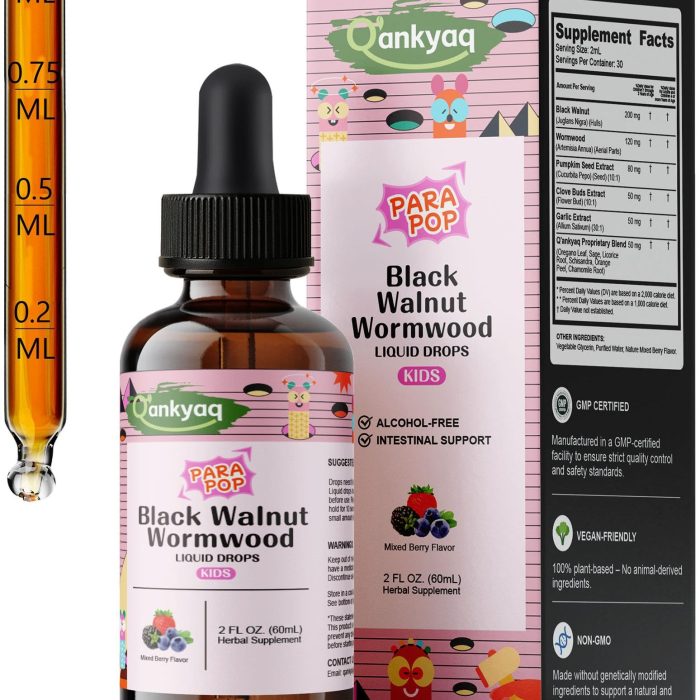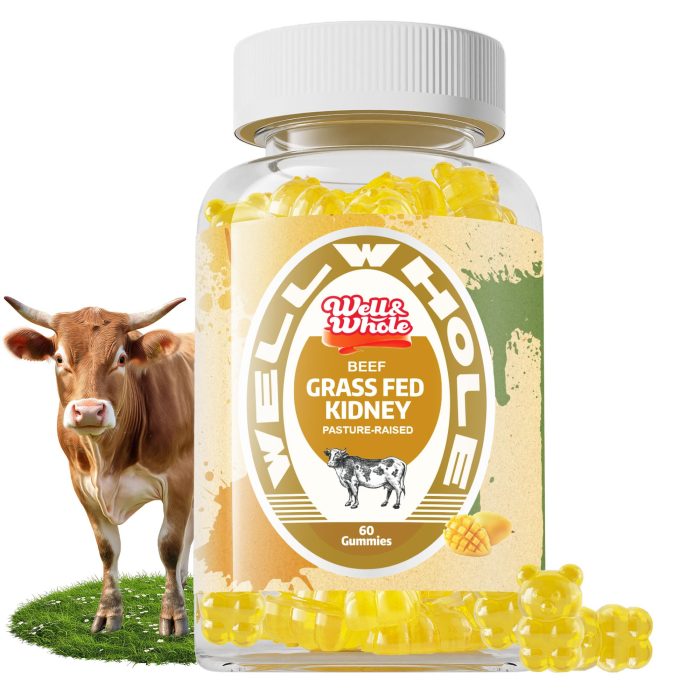What Is L-Lysine and How Does It Work in the Body?
L-lysine is an essential amino acid, which means your body can’t make it on its own—you need to get it from food or supplements. It’s a crucial building block for proteins, hormones, and enzymes that keep your body running smoothly.
Here’s what L-lysine does in your body:
- Protein synthesis: Helps build and repair muscles, skin, and organs.
- Collagen formation: Supports healthy skin, bones, and connective tissues.
- Carnitine production: Converts fatty acids into energy, boosting metabolism.
- Calcium absorption: Helps your body absorb and retain calcium, strengthening bones.
L-Lysine vs. D-Lysine: What’s the Difference?
You might see both L-lysine and D-lysine mentioned, but only the L-lysine form is bioactive—meaning your body can use it effectively. D-lysine is an unnatural mirror image and doesn’t play a biological role.
Daily Requirements and Deficiency Risks
Most adults need about 30–50 mg of L-lysine per kilogram of body weight daily. For a 150-pound person, that’s roughly 2,000–3,400 mg per day.
| Age Group | Daily L-Lysine Requirement (mg/kg) |
|---|---|
| Infants | 64 |
| Children (1-10 yrs) | 45 |
| Adults | 30–38 |
| Pregnant/Nursing | Slightly higher |
Lysine deficiency is rare but can cause fatigue, dizziness, and slower recovery from injuries. People who eat low-protein diets, vegetarians, or those with absorption issues should pay attention to their lysine intake.
Top 8 Proven Benefits of L-Lysine
L-lysine is a versatile amino acid with several well-studied health perks. Here are the top 8 proven benefits:
| Benefit | How It Works | Notes/Dosage Tips |
|---|---|---|
| 1. Combats Cold Sores and Herpes Outbreaks | Blocks arginine, an amino acid HSV-1 needs to replicate, helping stop cold sore flares. | Prevention dose: 1,000–3,000 mg daily. Effective for treatment too. Real-user reports back this benefit. |
| 2. Reduces Anxiety and Stress Levels | Lowers cortisol and helps normalize stress response in the body. Works well when combined with arginine. | Perfect for people with high-stress lifestyles seeking natural relief. |
| 3. Supports Bone Health and Prevents Osteoporosis | Boosts calcium absorption and helps retain bone density, especially useful for postmenopausal women. | Consistent intake can help reduce bone loss risks. |
| 4. Promotes Wound Healing and Skin Health | Enhances collagen synthesis to speed up healing from wounds or burns. Also reduces inflammation, leading to clearer skin. | Useful after surgeries or injuries for faster recovery. |
| 5. Lowers Blood Pressure Naturally | Studies show that lysine-deficient populations tend to have higher blood pressure; supplementation can aid pressure regulation, especially with a balanced diet. | Acts synergistically with a heart-healthy diet. |
| 6. Aids Muscle Recovery and Athletic Performance | Helps maintain nitrogen balance, reducing exercise-related stress and speeding muscle repair. | Great for athletes or during intense training phases. |
| 7. Strengthens Immune Function | Supports antibody production and antiviral responses, potentially preventing shingles and improving overall immune resilience. | Useful during cold and flu season or immune challenges. |
| 8. Emerging Benefits: Diabetes Management, Schizophrenia Support, and More | Shows promise in lowering blood sugar spikes and supporting mental health disorders as adjunct therapy. | More research underway, but early results are encouraging. |
These benefits make L-lysine a staple supplement for many looking to improve their health naturally. For more details on the primary advantages of L-lysine, you can check out this detailed guide on L-lysine benefits.
Whether your priority is cold sore relief, stress reduction, or bone support, L-lysine is an amino acid worth considering.
Best Food Sources of L-Lysine

If you’re looking to boost your intake of L-lysine naturally, focus on high-lysine foods like lean meats (chicken, turkey, beef), fish such as cod and sardines, eggs, and dairy products. For plant-based eaters, beans, lentils, quinoa, and nuts provide good amounts too, making it easier to meet your needs without animal products.
For most adults, the daily goal is about 30–50 mg of lysine per kilogram of body weight. That adds up, so prioritizing these foods helps maintain optimal levels.
Remember, balancing lysine with arginine-rich foods is important. Too much arginine, found in nuts and seeds, may interfere with lysine’s effectiveness, especially for those targeting cold sore prevention or specific health benefits. For practical tips on incorporating lysine into a balanced diet, check out this detailed guide on the importance of amino acids for optimal health.
If you want a simpler daily boost, alternating between top lysine foods and supplements like L-lysine gummies can keep your intake steady without hassle.
L-Lysine Supplements: What You Need to Know
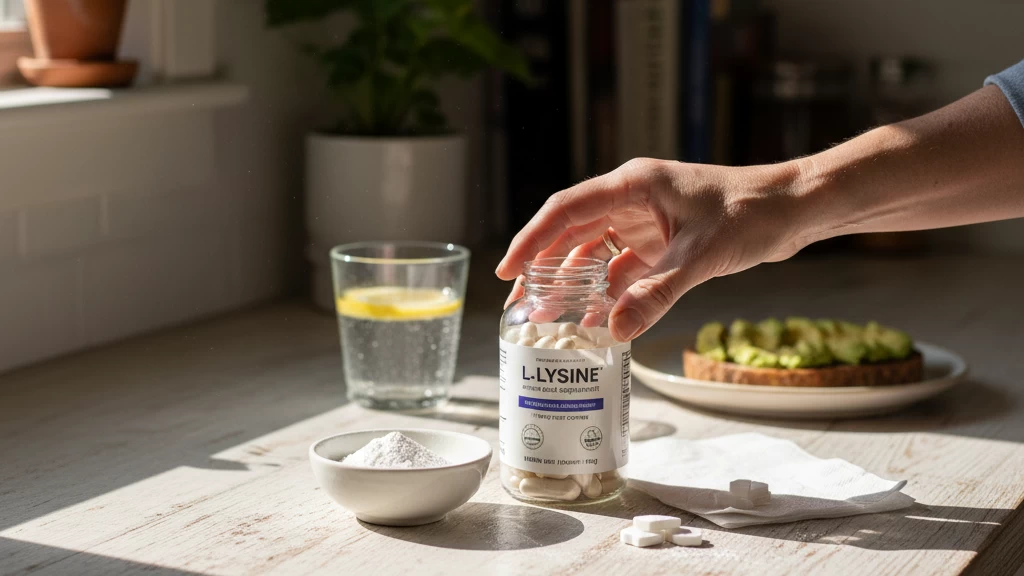
Sometimes, your diet might not give you enough L-lysine, especially if you’re vegetarian, vegan, or dealing with specific health issues like frequent cold sores or anxiety. That’s when supplementing can help. People often start L-lysine supplements to fill dietary gaps or target benefits such as immune support, muscle recovery, or managing herpes outbreaks.
Recommended Dosages:
- For cold sore prevention: 1,000–3,000 mg daily
- For anxiety and stress relief: Around 1,000 mg daily
- For general support: 500–1,000 mg daily is typical
Always check with a healthcare provider to find what dose suits your personal needs.
Supplement Forms:
You’ll find L-lysine in tablets, capsules, powders, and gummies. For great taste and convenience, many users recommend well&whole nutrition L-lysine gummies, which are easy to take and perfect if you dislike swallowing pills.
Absorption Tips:
To maximize how much L-lysine your body absorbs, take your supplement on an empty stomach—ideally about 30 minutes before meals. Pairing it with vitamin C can also help boost absorption and support collagen formation.
For more on managing cold sores naturally, check out this detailed guide on how to stop a cold sore from growing, which complements L-lysine’s role in viral control.
Potential Side Effects and Precautions
L-lysine is generally safe when taken at recommended doses, but some people might experience mild side effects like stomach upset or diarrhea. These symptoms are rare and usually happen if you take more than suggested.
Certain groups should be cautious or avoid L-lysine without medical advice, including those with kidney or liver problems, pregnant or nursing women. It’s always best to check with a healthcare provider before starting supplements.
L-lysine can interact with specific substances, including arginine (since they compete in the body), calcium supplements, and some antibiotics. These interactions might affect how well any of the substances work or increase side effects.
To stay safe, don’t exceed the advised upper limit of L-lysine, and consult your doctor for personalized dosing, especially if you have existing health concerns or take other medications. For more details on choosing the right dosage and supplement form, you might find this guide on how to choose the right lysine supplement helpful.
FAQs About L-Lysine Benefits
Here are quick answers to common questions about L-lysine and its benefits:
| Question | Answer |
|---|---|
| Does L-lysine really work for cold sores? | Yes. L-lysine helps block arginine, which the herpes virus needs to grow, reducing outbreaks and healing time. |
| How long until I see results? | Some people notice fewer cold sores or less anxiety within a week; full benefits like improved skin or bone health may take a month or more. |
| Can I get enough from food alone? | It’s possible if you eat high-lysine foods like lean meats, dairy, eggs, beans, and quinoa regularly. Supplements help if your diet is low or you have special needs. |
| Is it safe for kids or pets? | Generally yes, but always check with your pediatrician or vet before using L-lysine supplements for children or animals. |
| Best time to take L-lysine supplements? | Take L-lysine on an empty stomach for best absorption, ideally with vitamin C to boost effectiveness. Splitting doses throughout the day can also help. |
For more tips on using L-lysine daily, you can check out detailed info on the benefits and usage of L-lysine in daily health routines.


